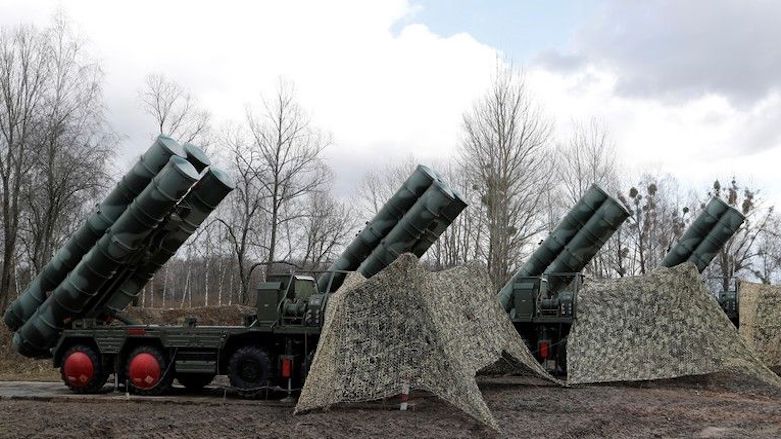Turkey remains defiant on S-400, as Senators warn of sanctions by Christmas

WASHINGTON DC (Kurdistan 24) – Despite US President Donald Trump’s efforts to avert a crisis in US-Turkish relations, such a confrontation appears to be looming.
Conflicting US and Turkish accounts
On Monday, Turkey tested the radar on its new advanced Russian air defense system, the S-400. Later that day, as Turkish President Recep Tayyip Erdogan flew back to Turkey after visiting Qatar, journalists asked him about it.
Erdogan claimed he had until April to reach an understanding with the US on the S-400, Ahval reported. But no US official has said that, at least not publicly, and it is certainly not the timeline of the US Congress.
The House of Representatives has already passed sanctions legislation. Senior US senators are talking about imminent action if the matter is not resolved soon. Congress will break for the Christmas and New Year’s holidays, and the senators appear determined to settle the issue before then.
Asked about Turkey’s test of the S-400 at a press briefing on Tuesday morning, US Secretary of State Mike Pompeo, said, “It’s concerning,” but “we are hopeful.”
“We’re still trying to figure our way through this thing,” he continued. “I don’t want to get out in front of what the President may or may not do, but we have made very clear to the Turkish Government our desire to see them move away from putting into full operationalization the S-400 weapon system.”
Turkish Foreign Minister Mevlut Cavusoglu also spoke to journalists on Tuesday. It was unclear whether his comments were made before or after Pompeo’s, but his remarks were the opposite.
“We have no commitment to anyone that we will not install or use the S-400,” Cavusoglu said. “We purchased it because we needed an air defense system. Is an air defense system taken to keep it in the box?”
Congress running out of patience
The House of Representatives has already passed, by an overwhelming majority, sanctions legislation on Turkey. The Senate, however, has yet to take action, having deferred, so far, to Trump’s desire to reach an accommodation with Erdogan.
Read More: Erdogan’s US visit goes smoothly, but tough issues remain unresolved
However, already last week, following Erdogan’s visit to Washington, Sen. Jim Risch (R, Idaho), Chairman of the Senate Foreign Relations Committee, said that if the Turkish President “is firm in his position on keeping the S-400s, I intend to move forward with a Turkey sanctions bill. It is his choice, and he knows the consequences.”
Sen. Lindsey Graham (R, South Carolina), addressing the Jewish Institute for National Security of America (JINSA) last week, spoke similarly.
Graham affirmed the need “to get the S-400 right.” If we don’t, “nothing else will work, and the Senate will pass the House version of sanctions by 95 votes”—that is, Trump will not be able to veto it.
“And that will be the beginning of the end of the relationship between the US and Erdogan’s Turkey,” he said.
Graham also warned that the delay in formulating a clear response to Turkish actions was undermining the US position elsewhere.
“Other people want the S-400,” he said. “They’re looking at what happens to Turkey.”
In light of such statements from powerful Republican senators, Pompeo’s warning seemed somewhat tepid. However, Alan Makovsky, a Senior Fellow at the Center for American Progress, suggested that he might have been seeking to reflect Trump’s position, while at the same time warning Ankara that Congress could pass sanctions legislation that Trump could not block.
Subsequently, a State Department spokesperson provided more details to Kurdistan 24 on the Department’s position, describing Turkey’s test of the S-400 as “a provocative action” that “poses a clear danger to NATO platforms, including US provided ones.”
Thus, it is not only bilateral US-Turkish ties that are at risk but NATO interests more broadly.
“An operational S-400 system is not consistent with Turkey’s commitments as a NATO ally,” the spokesperson continued, “and it is incompatible with the F-35”—America’s most advanced fighter jet (Ankara had been a major participant in the F-35 program, until it was excluded earlier this year, as it began to take delivery of the S-400).
Russian-Turkish Ties
Turkish officials have suggested they could buy a Russian fighter jet, the Su-35, if Turkey remains excluded from the F-35 program, and Moscow would welcome that. Indeed, the head of Rosoboronexport, Russia’s state arms exporter, said on Tuesday that Moscow and Ankara were discussing the possibility of Turkey purchasing more Russian arms.
“I want to stress that military technical cooperation with Turkey is not limited to the supply of S-400s,” he said. “We have big plans ahead.”
Russian President Vladimir Putin is slated to visit Ankara in January to mark the opening of the Turkstream pipeline—through which Russia will supply Turkey with natural gas. It will also be an opportunity for Putin to press Erdogan on Russian military purchases, including the Su-35, the Voice of America noted.
Dr. Aykan Erdemir, a former Turkish parliamentarian and currently a Senior Fellow at the Foundation for Defense of Democracies, advised Kurdistan 24 that the US “appeasement policy toward Erdogan has not only failed to reverse his adversarial course of action, but also emboldened him to transgress American red lines in other areas.”
Washington’s approach “appears to be based on wishful thinking,” but “Erdogan has so far shown no signs of improving relations with the US or other NATO allies,” Erdemir continued. “On the contrary, he continues to pivot Turkey toward Russia” and “play a spoiler role within the transatlantic alliance.”
Editing by Karzan Sulaivany
